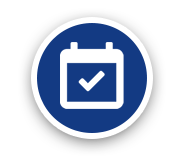A skipped heartbeat every now and then is normal. But if your heartbeat is consistently irregular, you may have an arrhythmia, like atrial fibrillation (AFib). You need medical care to get your heartbeat back to a steady, regular pace.
The electrophysiologists (irregular heartbeat specialists) at Emory Heart & Vascular have the expertise to manage all types of arrhythmias. We will work with you to identify the right treatment for you.





